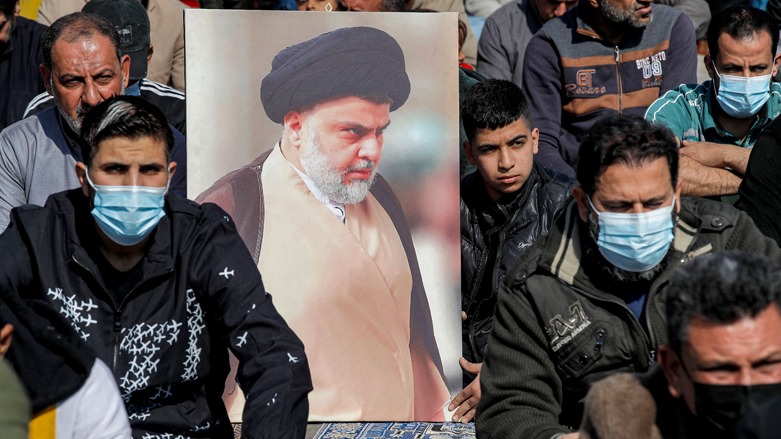Sadr reiterates call for majority government, welcomes dialogue with 'national opposition'

ERBIL (Kurdistan 24) – Following his meeting with Kurdish and Sunni leaders in Najaf, Muqtada al-Sadr reiterated his call for a "majority government" and said he welcomes dialogue with the "national opposition".
Following the announcement of an initiative by the Kurdistan Democratic Party (KDP) Masoud Barzani to resolve the political deadlock over the government formation, Kurdistan Region President Nechirvan Barzani visited Najaf, along with Sunni leaders Mohammad al-Halbousi and Khamis Khanjar, and met Sadr.
After Monday's meeting, which lasted almost two hours, Sadr underscored his call for a "national majority government" in a tweet.
"Stop the terrorism and violence against the people and the partners that are still for the national majority government," Sadr tweeted.
He also added that "we welcome dialogue with national opposition."
On Monday, President Masoud Barzani announced the initiative that intends to overcome the ongoing deadlock and provide a suitable atmosphere for the formation of Iraq's next government.
Sadr's bloc won the most seats in the October parliamentary elections, making him a kingmaker in forming the next government.
Government formation talks have been ongoing for more than 100 days after the Oct. 10, 2021 elections.
The Shiite Coordination Framework, mainly composed of the pro-Iran factions, calls for a consensus government, which Sadr opposes.
